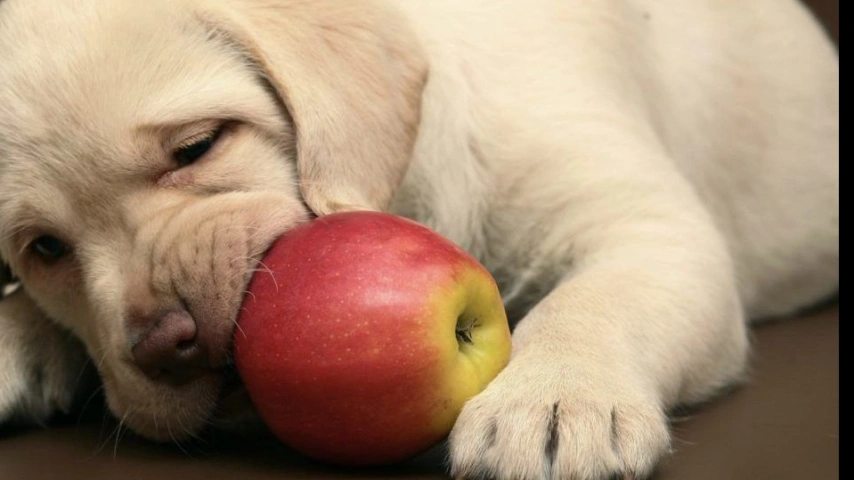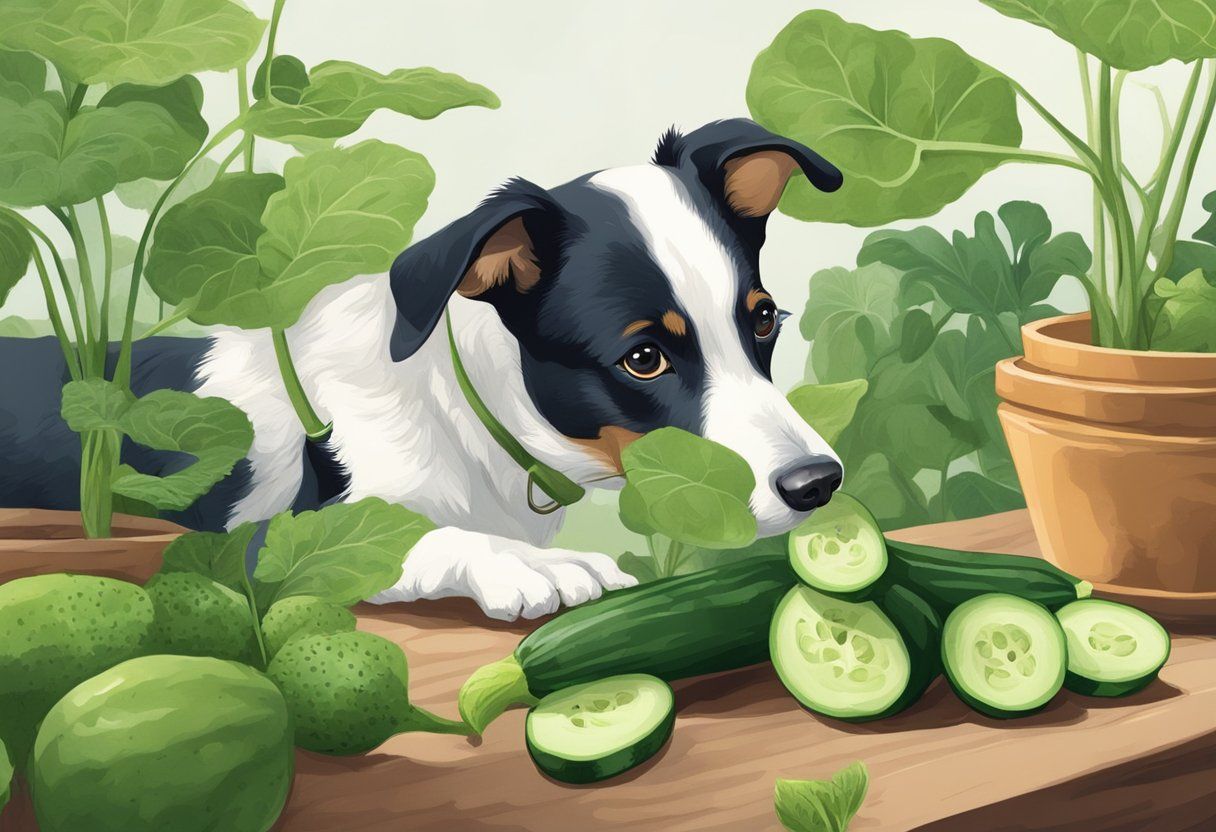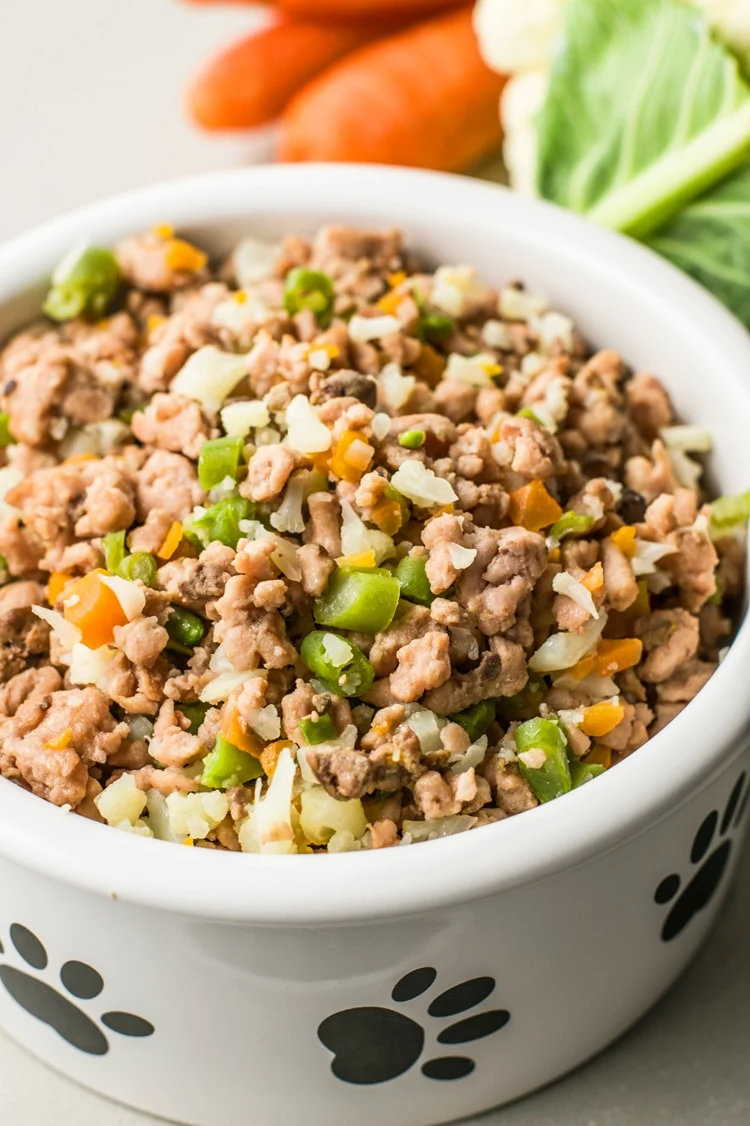Dog / Detail
A Crunchy Canine Craving: The Health Benefits of Fruits and Vegetables for Dogs
Jonathan Bennet | 23 October 2024 | 12:10
Many dog owners have observed their fur babies displaying a peculiar fondness for fruits and vegetables. While traditional dog treats often consist of meat-based products, some dogs seem to gravitate towards the crunch of lettuce, cucumber, and green apple. But is this unusual dietary preference healthy, and can it be encouraged in all dogs?
Fruits and vegetables can be a healthy and enjoyable addition to a dog's diet. By providing essential nutrients and promoting digestive health, these foods can contribute to your dog's overall well-being.

However, it's important to introduce them gradually, monitor for any adverse reactions, and ensure that your dog's diet remains balanced. With proper guidance and training, many dogs can develop a newfound appreciation for the crunch of fruits and vegetables.
The Nutritional Value of Fruits and Vegetables for Dogs
Fruits and vegetables offer a variety of health benefits for dogs. They are rich in essential vitamins, minerals, and antioxidants, which can contribute to overall well-being.

- Vitamins: Fruits and vegetables contain essential vitamins like vitamin C, which is important for immune function and collagen production. Vitamin A is crucial for healthy vision and skin.
- Minerals: These foods provide essential minerals such as potassium, which regulates fluid balance, and calcium, which is vital for strong bones and teeth.
- Fiber: The fiber content in fruits and vegetables can aid in digestion, promote healthy bowel movements, and contribute to a feeling of fullness.
- Antioxidants: Antioxidants help protect cells from damage caused by free radicals, which can contribute to aging and chronic diseases.
Is it Healthy for Dogs to Eat Fruits and Vegetables?
While fruits and vegetables can be a healthy addition to a dog's diet, it's important to introduce them gradually and in moderation.
Some fruits and vegetables may contain toxic substances for dogs, so it's crucial to consult with a veterinarian before incorporating them into your dog's diet.
Here are some fruits and vegetables that are generally safe for dogs:

- Fruits: Apples (without the core), bananas, blueberries, cantaloupe, cranberries, mangoes, peaches, pears, raspberries, strawberries
- Vegetables: Asparagus, broccoli, carrots, celery, cucumbers, green beans, leafy greens (like spinach and kale), peas, sweet potatoes, zucchini
Training Dogs to Eat Fruits and Vegetables
Many dogs may initially be hesitant to try fruits and vegetables. However, with patience and positive reinforcement, you can train your dog to enjoy these healthy treats.

- Start Small: Introduce fruits and vegetables gradually, offering small pieces at a time.
- Positive Reinforcement: Reward your dog with praise and treats (like their regular dog treats) when they eat the fruits or vegetables.
- Variety is Key: Offer a variety of fruits and vegetables to keep your dog interested.
- Experiment: Observe your dog's preferences and tailor their diet accordingly.

Can Fruits and Vegetables Help Dogs Maintain a Healthy Weight?
While fruits and vegetables can be a nutritious addition to a dog's diet, they should not be relied upon as the sole source of nutrition. A balanced diet that includes protein, carbohydrates, and healthy fats is essential for maintaining a healthy weight and overall well-being.
If your dog is struggling with weight management, consult with a veterinarian to develop a tailored diet plan. They can help you determine the appropriate amount of fruits and vegetables to incorporate into your dog's meals.
Related
-

The Healing Power of Dogs: How Canine Therapy is Revolutionizing Mental Health and Boosting Positive Energy in Humans
Dog14 November 2024
-

A Pawsitive History: Dogs of Nuremberg
Dog09 November 2024
-

The Role of Oxytocin in the Human-Dog Bond: The Science Behind Our Deep Connection
Dog06 November 2024
-

Beyond the Beach: Jamaica's Dog Lovers
Dog29 October 2024
-

A Dog's Delights: Homemade Snacks for Our Furry Babies, Recipes Included!
Dog29 October 2024
-

A Dog's Disorientation: Understanding Your Dogs' Wanderlust
Dog29 October 2024
Popular
-

-

A Pawsitive History: Dogs of Nuremberg
09 November 2024 -

-

Beyond the Beach: Jamaica's Dog Lovers
29 October 2024 -
